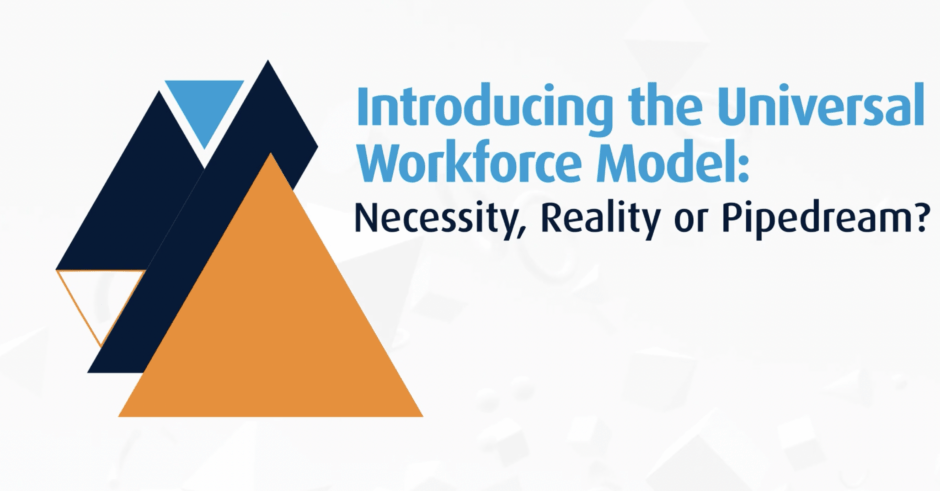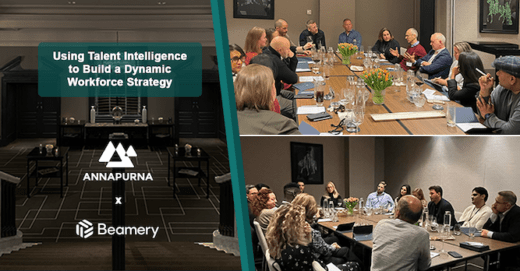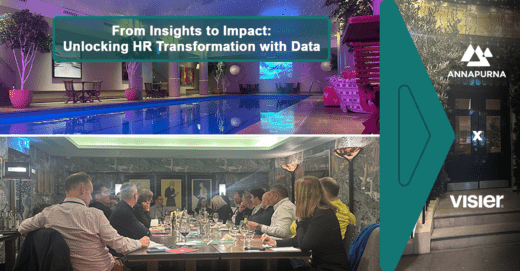What is the most efficient and effective way to get work done? This question is one that is not just asked by the People function but by business leaders across all industries. What processes and technologies can we put in place to optimise how we do work?
The BTN and Allegis Global Solutions (AGS), the leading provider of global workforce solutions, brought together a group of People leaders for an exclusive virtual roundtable around some of the recent changes that are affecting organisations recently such as remote work, in-demand skills, rebuilding teams and evolving the organisation.
The session was hosted by Bruce Morton (Head of Strategy at AGS), who led the discussion, alongside Dave Ulrich (Co-founder & Principal at The RBL Group) and Simon Bradberry (Vice President at AGS, EMEA),
Simon Bradberry opened up the dialogue by explaining how organisations struggle to harness talent due to the twin challenges AGS has identified as the strategic problem and the stakeholder problem. The strategic challenge is fueled by delivering a strategically important service through a function that is viewed as providing a tactical solution, manifesting in challenges around sourcing, such as resources demand, technology capabilities and who actually does the sourcing, internal or an RPO provider. Touching then on the stakeholder problem, speakers looked at keeping multiple stakeholders within the business engaged through the process and some of the reasons why the CPO, CFO, CEO, CHRO and other business leaders struggle to join up their individual goals to a single organisational objective.
The group then discussed how a potential solution with three defining features (task- versus role-based planning, workforce business partners and an intelligent workforce platform) that AGS calls the Universal Workforce ModelTM aligns with some of the key organisational issues that are currently being faced.
The conversation continued with Dave Ulrich, who looked at some of the challenges and opportunities for HR in 2022 and beyond around the changing boundaries of work, the human capabilities, reinventing HR and what really is the most important thing to HR.
The discussion with the group brought about the following takeaways:
Now is the time for HR change
The time to redefine the business is now. We must be thinking about what the most important thing is to HR, and, as Dave Ulrich explained, that should be “for a company that succeeds in the marketplace”. Unless HR succeeds, there is no workplace at all, so our focus should always be on organisational success.
When we look at HR’s contribution to the workplace, the deliverables should be great talent, a great place to work and effective leaders. Every organisation will have different processes that they use as the basis for their success, but an element that should become a staple part of this infrastructure for success is the support of an intelligent workforce platform. This is the time to reinvent HR, and HR can rise to the opportunity.
Why would procurement, finance and HR all get in the same room unless there is a burning issue that we are trying to solve? We must get our teams working together to try to create opportunities before they become issues that need to be solved. Our teams should work proactively, rather than intuitively reactive.
Talent is more about the task than the role
There was an open conversation around the task versus the role and how this is managed within organisations when it comes to talent management. Attracting the right people into the role is ultimately the aim when an opportunity to hire comes along but finding the balance of outcome between procurement and HR/Talent Acquisition remains a challenge. Procurement will have an influence in determining the resource model to use, and therefore a presumed focus on cost and efficiencies will lead to unintended consequences.
We must look less on the role when hiring and look at what actually needs doing in terms of the task. Business leaders want the agility to get the necessary work done but then when it comes to hiring, there seems to be a lack of agility, partly because the day-to-day operationalisation of shifting towards a task-based approach sits with individuals who are not able to influence enterprise-level strategies in relation to systems and processes.
Our organisations need to become more precise and with deeper capabilities so that someone can think more strategically and operationally around a job getting done rather than a traditional linear job (i.e., role). We must look at tasks and try to avoid seeing permanent and interim recruitment as siloed pools. If there is truly a long-term need for an employee, then we must look at where we source it from.
The concept of ‘work’ is changing all the time
The boundaries of work have changed for good as ‘work’ is no longer a place/building; rather, it is now about the role itself. It is no longer about where or how you are working. What really matters is the work being done and why we are working.
Artificial Intelligence is going to dominate a lot of the work that we have done historically so we must be thinking about what tasks are the most important to delivering customer value. Automation is undoubtedly going to change how everyone does their job. Therefore, what some consider ‘business’ today is also going to change. Employees were historically loyal to the company; now they are loyal to the craft, and the role of work is adapting. An example was given whereby the employee lifecycle of a Machine Learning expert was around 18 months within an organisation, and as long as we understand this prior to hiring and during their journey, we can reap the benefits.
There was a discussion about how a task-based mindset could be polarised from the company mission/purpose orientation that organisations are now aspiring to align with, but we must try to understand what people are looking for. There shouldn’t be a task versus mission conversation if we can connect the dots and ensure the story we are telling as an organisation focuses on the business value.
As organisations, we should always be starting with customer value and evolving our decisions from there. Our focus should be less on the position of the individual and more on the actual tasks they do for the organisation. If a task creates long-term customer value, then this should have a direct impact on the individual we hire. The change management of leaders’ mindsets needs to catch up with the gig economy for organisations to truly impact the way they should be.
Employers are always looking for more strategic partnerships from their suppliers’, however, the emphasis regularly falls on simple cost and transactional metrics. Organisations should try to build more strategic partnerships with their suppliers, which can then facilitate strategic insights to support things like workforce planning.
The conversation covered a variety of topics, but the underlying themes were that we must be bringing together external market data and aligning this to our internal data to truly understand the best strategy to move forward. This can be possible with the Universal Workforce Model, but we must get our leaders working together, thinking about the future and looking at the most efficient and effective way to get work done.
This session followed on from our recent ERUPT conference, where John Boudreau (Senior Research Scientist & Professor Emeritus at the University of Southern California), joined Dave Ulrich, Simon Bradberry, & Bruce Morton to discuss the increasing pressure companies are facing to adjust to a changing workforce.
You can watch the full session here
And, for further insight into the Universal Workforce Model, download a preview from AGS’ upcoming 2022 e-book, The Universal Workforce Model: An Outcome-First Guide to Getting Work Done, here.
About Allegis Global Solutions
The world of work has changed. As the leading provider of workforce solutions, Allegis Global Solutions (AGS) guides companies through a transformative journey to redesign the way work gets done. We know what it takes to attract the best talent while simultaneously building and executing strategies that align workforce capabilities with the agility required to stay ahead of what’s next. With decades of experience, continuous investment in innovation and a robust portfolio of workforce analytics and insights capabilities, we’re equipped to help companies better navigate uncertainty and complexity by empowering their ability to run, grow and transform in a way that dramatically improves business outcomes while enhancing the work experience for all.
www.allegisglobalsolutions.com



